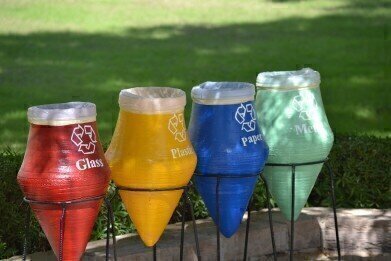Business News
Most of Us Overestimate How Environmentally-Friendly We Are
Jan 10 2020
The majority of people believe they are more environmentally friendly than their peers, according to a new study from the University of Gothenburg in Sweden. After conducting surveys with participants from Sweden, the UK, the USA and India, the author of the study Magnus Bergquist concluded that most of us are predisposed to overestimate the eco-friendliness of our actions.
The findings are concurrent with other studies which point to a so-called “better-than-average effect” (BTAE), wherein people from all walks of life tend to view themselves as better than others in various aspects of their lives. The research shows that BTAE also applies to sustainability issues and could potentially have a negative effect on the environmental efforts of people going forwards.
Studying behaviours
Environmental psychology researcher Bergquist acknowledges that previous studies have shown people have a tendency to view themselves as more honest, more creative and better at driving a car than others. With his latest work, he wished to ascertain whether this principle of BTAE applied to environmental habits as well.
During the study, more than 4,000 respondents answered questions on their eco-friendly activities, including things like how often they recycled, reduced consumption of plastic bags, conserved energy around the home and bought products with environmentally-friendly labels. In order to obtain a broad overview of people’s beliefs, Bergquist was careful to choose a varied cross-section of society for the participants, involving people from four different countries around the world.
The results showed that regardless of location, from supremely sustainable Sweden to a slowly improving India, respondents believed that they were more environmentally friendly than others, including both friends and strangers. Not only did people overestimate the frequency with which they undertook environmental activities, but they underestimated how often others did so, too.
Unwanted consequences
One potential outcome of this BTAE principle is that if people believe they are already performing better than others, they will be less incentivised to keep up that good work. Indeed, this erroneous belief may ironically be the catalyst for them becoming less environmentally-friendly than they perceive and in comparison to others.
This consequence is particularly troubling given the collective effort that it will take for the world to clean up its act with regards to looking after the planet. For example, it’s widely accepted that microplastic pollution is a problem facing all of us, but it’s perhaps less universally understood that it can only be overcome if everyone is pulling in the same direction. Bergquist believes that one way in which the BTAE principle can be circumnavigated is by raising awareness of society’s cumulative efforts.
“If you think about it logically, the majority cannot be more environmentally friendly than others,” he explains. “One way to change this faulty opinion, is to inform people that others actually behave environmentally friendly, and thereby creating an environmentally friendly norm. Social norms affect us also in this area, we know this from previous studies.”
Digital Edition
AET 28.2 April/May 2024
May 2024
Business News - Teledyne Marine expands with the acquisition of Valeport - Signal partners with gas analysis experts in Korea Air Monitoring - Continuous Fine Particulate Emission Monitor...
View all digital editions
Events
Jul 30 2024 Jakarta, Indonesia
China Energy Summit & Exhibition
Jul 31 2024 Beijing, China
2024 Beijing International Coal & Mining Exhibition
Aug 07 2024 Beijing, China
IWA World Water Congress & Exhibition
Aug 11 2024 Toronto, Canada
Aug 25 2024 Stockholm, Sweden and online










.jpg)








